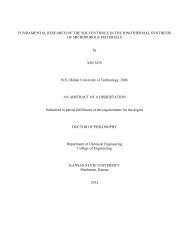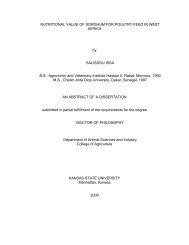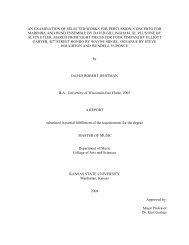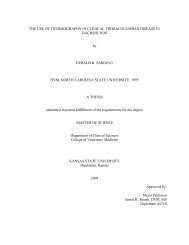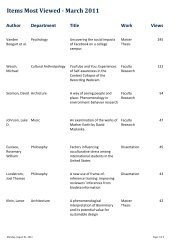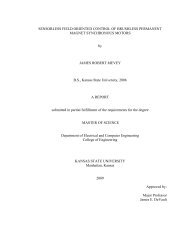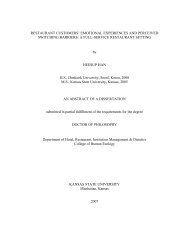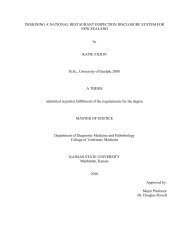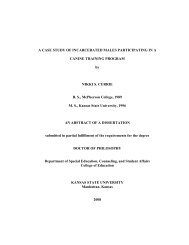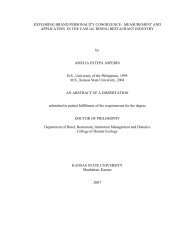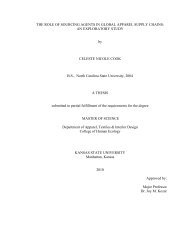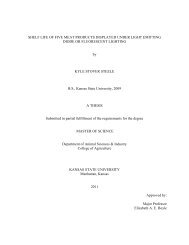SELFISH INTENTIONS - K-REx - Kansas State University
SELFISH INTENTIONS - K-REx - Kansas State University
SELFISH INTENTIONS - K-REx - Kansas State University
Create successful ePaper yourself
Turn your PDF publications into a flip-book with our unique Google optimized e-Paper software.
its ministers and elders to review the church’s position on divorce. The church forbade divorce<br />
except in cases of adultery. They also made it clear that ministers were not to marry someone<br />
who was divorced unless they were the innocent party to an adulterous spouse or if the divorced<br />
couple wanted to get remarried. The Methodist church also implored its members to petition<br />
members of Congress to coordinate and consolidate state divorce laws. The conference report<br />
explained, “We further urge upon our legislators and members of Congress the necessity of<br />
securing the co-ordination of the laws of the several states regulating marriage, divorce, wife and<br />
child desertion and other abuses of the marriage relation.” 103 The church argued that states<br />
should have similar divorce laws. If the laws of <strong>Kansas</strong> were similar to her border states, then<br />
the 1909 statute loophole which allowed nonresidents to get a fast divorce would be eliminated,<br />
thus decreasing divorces in the state of <strong>Kansas</strong>.<br />
Furthermore, the 1913 conference of the Methodist brethren reiterated its statement on<br />
divorce. The conference report stated, “‘No divorce except adultery shall be regarded by the<br />
church as lawful; and no minister shall solemnize marriage in any case where there be a divorced<br />
husband or wife living, but this rule shall not be applied to the innocent party to a divorce for the<br />
cause of adultery, not to divorced parties seeking to be reunited in marriage.’” 104 It is interesting<br />
to note that following these pronouncements by the Methodist church in 1912 and 1913, divorces<br />
in Riley County decreased from thirty-eight in 1912 to twenty-six in 1913 and then to sixteen in<br />
1914. How much the church’s impact is reflected in these statutes is, of course, unknown.<br />
What is clear is that the legal loophole created with the 1909 changes in the statutes<br />
allowed for an increase in divorces. That increase came at a time when growing numbers of<br />
103 th<br />
Methodist Episcopal Church <strong>Kansas</strong> Conference Official Record and Minutes of the 57 Annual Session, 20-25<br />
March 1912, Reforms Clause, 47.<br />
104 th<br />
Methodist Episcopal Church <strong>Kansas</strong> Conference Official Record and Minutes of the 58 Annual Session, 5-10<br />
March 1913, Reforms Clause, 47.<br />
42



